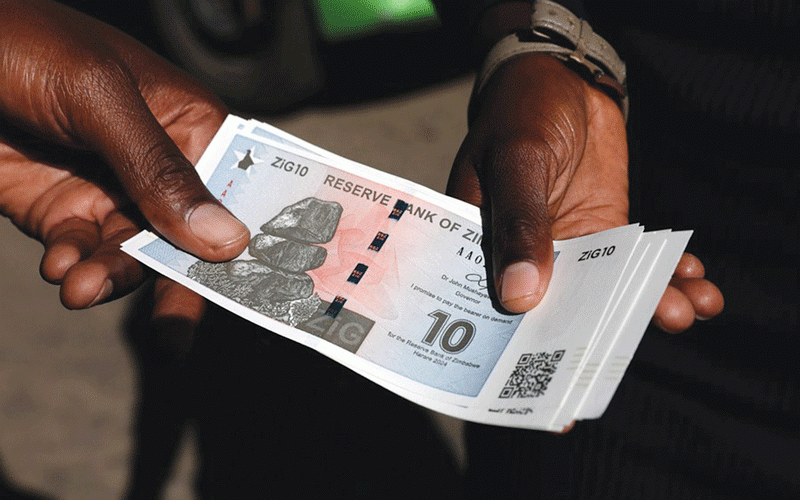
THE Reserve Bank of Zimbabwe (RBZ) has blamed the collapse of the new Zimbabwe Gold (ZiG) currency on rent seeking and speculative behaviour in the parallel market.
Zimbabwe saw the introduction of the ZiG in April this year as the authorities scrambled for answers to the collapse of the local currency, which was still known as the RTGS.
The ZiG was introduced at a fixed rate of ZWG13,56 against the US dollar, but it is now trading at ZiG45 to US$1. On the more popular parallel market it is trading at as high as ZiG45 to US$1.
Nicholas Masiyandima, the RBZ’s economic research, modelling and policy deputy director, told the just ended 42nd Employers’ Confederation of Zimbabwe Annual Congress in Victoria Falls, that speculative purchasing or even pegging of exchange rates was undermining the ZiG.
“And then one wonders who then or what then is driving the parallel exchange rate that we see and the premiums that we see, the turbulence that we see?
"And, on that let me indicate that issues of rent-seeking and also even issues of speculative purchasing or even pegging of exchange rates have also become increasingly rampant,” Masiyandima said.
“Probably because of issues of confidence that I have indicated in the beginning, and even issues of trying to be forward-looking in terms of leading against potential losses.
“But, however, I think you can agree with me that those pressures that you see on the exchange rate and on inflation are not exclusively a result of reckless currency issuance by the central bank or by the government.
- RBZ blocks Harare US dollar charges
- Industry cries foul over new export surrender requirements
- One stitch in time saves nine
- Banks keep NPLs in safe territory
Keep Reading
“They are not a result of macroeconomic mismanagement, but they are also largely or also to a large extent attributable to even speculative tendencies and also even to just in terms of exchange rates.”
He said the monetary policy remained tight in the outlook adding that the ZiG3,1 billion reserve money as at October 4, 2024, was more than three times cover by the gold and foreign exchange reserves amounting to US$419 million on the same date.
The RBZ official added that the foreign reserves position was also sufficient to cover the entire local currency money supply of ZiG10,8 billion.
Masiyandima said this money was too little to cause havoc.
While industry has bemoaned shortages of foreign currency that is now affecting their operations, the RBZ official said the uptake on the forex on the willing buyer willing seller platform remained very low.
“On the day when the major devaluation from about ZiG14 to about ZiG25, the Reserve Bank also intervened in the willing buyer, willing seller market by injecting US$50 million.
“And, to tell you, of that US$50 million, initially, it was injected at an exchange rate higher than ZiG25,” Masiyandima said.
“There were no uptakes. But, here are the facts that I’m telling you about, from the millions of US dollars that is getting into the market and only 60% is being taken up.
“And, out of the US$50 million that was injected, at that point when we had that major decline, only 70% was being taken in reality.”
He said this showed that liquidity-wise, the central bank was living up to its commitment to make sure that they had a tight money supply.
Masiyandima urged business to make sure that it lived within expectations and utilised the willing buyer willing seller facility effectively.
“The challenges that we seem to have are issues of liquidity shortages, which we still need to have in the meantime to sustain stability on prices and on the exchange rate,” he added.
“Until we’ve got that being sustainable, then we have to live within that particular restrictive monetary policy in the meantime.”











